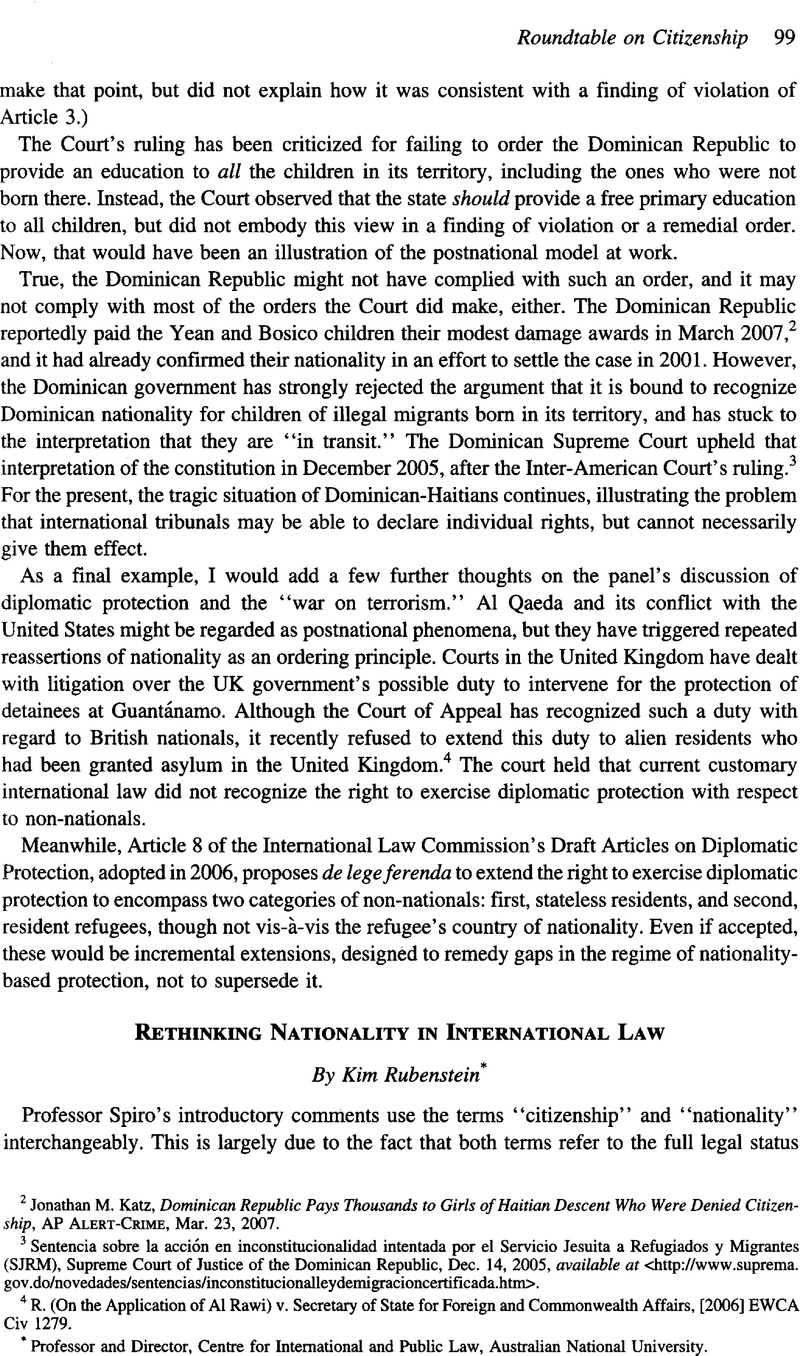Article contents
Rethinking Nationality in International Law
Published online by Cambridge University Press: 28 February 2017
Abstract

- Type
- Roundtable on Citizenship
- Information
- Copyright
- Copyright © American Society of International Law 2007
References
1 P. Weis, Nationality and Statelessness in International Law 5 (1956).
2 Committee on Feminism and International Law International Law Association, Final Report on Women ‘s Equality and Nationality in International Law, in Report of the Sixty Ninth Conference of the International Law Association (2000).
3 Id. at 248.
4 Note the interesting contrast in Professor Knop’s contribution to this panel looking at private international law’s treatment of enemy aliens.
5 A similar example in the Canadian context is that of Ahmed Khadr. See Macklin, Audrey, Exile on Main Street: Popular Discourse and Legal Manoeuvres Around Citizenship, in Law and Citizenship 22-54 (Law Commission of Canada ed., 2006)Google Scholar.
6 See Tully, Stephen, Australian Detainee Pleads Guilty Before the First Military Commission, 11 ASIL Insight (Apr. 23, 2007), at <http://ASIL.org/insights/2007/04/insights070423.html>Google Scholar.
7 Id. See Hicks v. Ruddock et al. [2007] FCA 299 (Fed. Court of Australia, Mar. 8, 2007).
- 3
- Cited by


